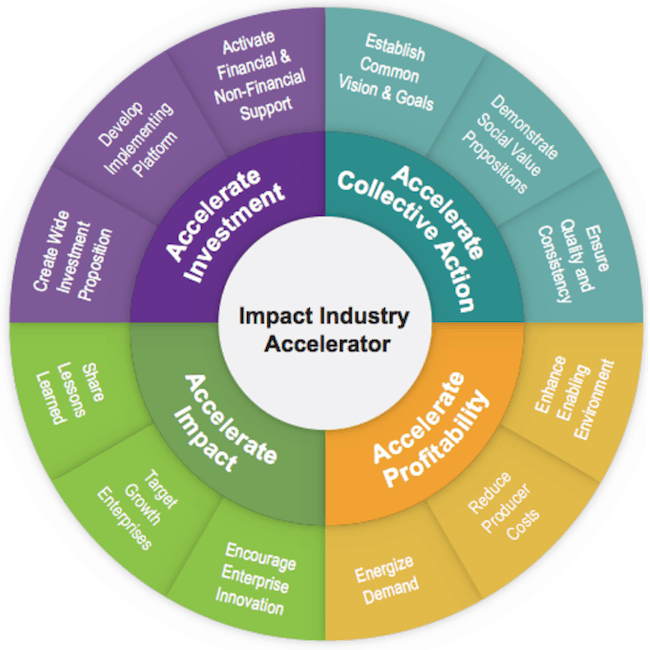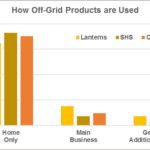Moving the Clean Cookstoves Sector Forward: Six Principles for Investors
Around 3 billion people across the world rely on solid fuels for their daily cooking needs, and the adverse effects of traditional cooking methods on health, environmental and socioeconomic conditions, especially among women, are well documented. Clean cookstoves promise a solution to these issues, but the effectiveness of this sector in achieving different impact objectives highly depends on how investment decisions are made.
A recent study by LEAD at Krea University, supported by FMO, the Dutch development bank, consolidates evidence on the impact of clean cookstoves in low- and middle-income countries, and the effectiveness of the business models employed for their delivery. The study identifies six principles that development finance institutions (DFIs) and other stakeholders, such as impact investors, should follow to ensure that investments in clean cookstoves yield the greatest impact possible. We’ll discuss these principles below.
Leverage local policy to guide investments and align with opportunities
Considering whether policymakers are prioritizing one type of cookstove or fuel over another (through regulations, directives and adequate budget allocations) can help predict whether an investment has the potential to succeed. For instance, the Indian government has been heavily promoting and subsidizing the adoption of liquefied petroleum gas (LPG)-based cookstoves, effectively rendering investments in other types of cookstoves unviable. Additionally, before finalizing any investment, it is important to consider the political cycle – i.e., when the next elections will be held, and what candidates’ stated policy intentions are on this topic. It’s also advisable to assess the government’s past policy decisions, weighing how long relevant policies have been in place (to gauge political commitment) and how effectively they have been implemented.
Explicitly identify priority outcomes and choose best-fit cookstove designs
Clean cookstoves come in a wide variety of designs and often use different fuel types, which influence their effectiveness in advancing different impact objectives. For instance, LPG cookstoves emit very low levels of particulate matter, making them a healthy option for the households that use them. However, LPG is produced either from crude oil refining or the extraction and processing of natural gas. Taking transportation into account as well, it is clear that the carbon footprint of LPG is negative. On the other hand, improved cookstoves using biomass might have a minimal impact on the environment, but they still emit harmful particulate matter – though how much depends on the design of each type of cookstove. Similarly, some cookstoves are more fuel efficient than others, thus having different impacts on savings, both in terms of money and time. One single type of cookstove that maximizes impact across all dimensions (e.g., economic, social, health and environmental outcomes) is extremely unlikely to be found. Thus, before making any investment it is essential to understand which outcome is the most important for the investor, and to select a cookstove design that focuses on achieving that outcome.
Invest in cookstoves based on Human-Centric Design principles
The impact of cookstoves is conditional on their correct, continuous and exclusive use, as demonstrated by numerous studies documenting instances where families stopped using clean cookstoves shortly after acquiring them. In these cases, users preferred their traditional stoves due to different reasons, such as habit, familiarity, ease of use and fitness for their context (e.g., is the stove large enough to cook meals for large families?). Therefore, it’s important to ensure that people use their clean cookstoves with minimal assistance – and to that end, sufficient guidance and the right incentives are essential. This also requires cookstoves that are designed to fit the needs, behavior and preferences of the users – in other words, stoves created through Human-Centric Design. In practice, this means time and resources must be invested in engaging with users, and prototyping, piloting and refining solutions before their roll-out. This is a critical phase that is often overlooked by investors eager to jump into production and distribution.
Consider the readiness of local financial markets to support clean cookstoves
Investments from DFIs and other international development actors play an important role in starting up clean cookstove businesses. But these businesses’ sustainability depends on their access to additional, local sources of finance as well, which depends on the development, vitality and rules of the local financial market. Therefore, before considering any investment, it is important to determine the likelihood that a clean cookstove business will be able to raise additional funds from local financial institutions. It’s also necessary to consider whether financial sustainability conditions should be tied to the various instalments of the investment – which could mean, for instance, linking payment tranches to the demonstration of profitability and/or the company’s capacity to raise funds from other sources.
Focus on opportunities that demonstrate mastery of the local context
The principles discussed above already identify the importance of ensuring that investments understand and account for local social norms, financial markets and policies. However, that is not enough. The local infrastructure (e.g., the road network, power supply, etc.), productive capacity, supply chain (e.g., access to fuel, components, etc.), and market (e.g., competitors, costs, affordability of the proposed product, etc.) need to be accounted for as well. Investors should carefully consider whether potential funding recipients demonstrate a strong and clear understanding of these factors. For instance, countries with limited access to natural gas, due either to a lack of availability of this resource or poor infrastructure to distribute it, are unlikely to be able to create a scalable and sustainable supply chain for LPG stoves, thus making investments in biomass cookstoves more promising. On the other hand, countries with well-developed power grids could easily roll out electric cookstoves, which means that investments in cookstoves powered by other fuels would not be recommended.
Embed knowledge-generation activities
Blindspots still exist in the development sector’s understanding of clean cookstoves – both in terms of impact and, more importantly, business practices. In regard to the first, the LEAD report shows that the evidence of the effects of the adoption of cookstoves on health is promising but mixed, while evidence is still largely missing when it comes to environmental outcomes. On the other hand, the positive effect of the adoption of clean cookstoves on household savings and time use, especially for women, is well documented. However, the picture becomes much more complicated when reviewing evidence of the effectiveness and efficiency of different business models, including their productive, marketing and distribution strategies – indeed, this evidence is essentially absent. This is a significant gap, which makes it virtually impossible to use rigorous evidence to identify and scale best practices. Embedding knowledge generation activities into future investments in clean cookstoves – including impact and, more importantly, process evaluations and cost-benefit analysis – will improve the sector’s understanding of what works and what does not. This will make future investment decisions easier and more impactful.
Overall, the impact of investments in clean cookstoves depends highly on contextual factors. Moreover, DFIs can play a critical role in helping to bridge knowledge gaps, by developing evaluation protocols and standards for assessing the integrated impact of clean cooking solutions across social, economic and environmental outcomes – and for evaluating the effectiveness of different business models. While some degree of uncertainty in investing in this dynamic sector is inevitable, following these six principles can help investors increase their chances of achieving impact, potentially improving the lives of millions across the globe.
This study was financed by FMO, the Dutch Development Bank, through its MASSIF Fund.
Mitzi Perez Padilla is an Evaluation Officer at FMO; Fabrizio Valenti is a Senior Consultant at KSAR & Associates.
Photo courtesy of travelwayoflife.
- Categories
- Energy, Impact Assessment, Investing



